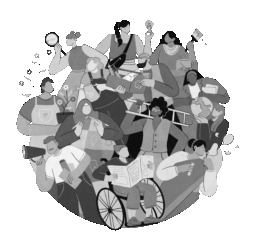Illegal, Unregulated and Unreported Fishing, Aquaculture, and Poverty Dynamics
This K4DD Rapid Evidence Review explores illegal and unregulated fishing and aquaculture production.
Aquaculture primary production is a globally significant sector involving 230 countries, with marine products one of the most traded commodities globally. While aquaculture is growing as an industry, capture fisheries’ contribution to the blue economy has remained fairly constant.
There is a lack of reliable data on the true extent of illegal, unregulated and unreported (IUU) fishing, due to its illicit nature and the range of evasive strategies employed by IUU vessels. Despite limitations to monitoring, control and surveillance, strong evidence suggests that IUU fishing has significant impacts on coastal communities and small-scale artisanal fisheries, influencing multidimensional poverty and impacting revenues for low- and middle-income countries (LMICs).
This is significant where limited resources to enforce regulations is a key factor influencing continued IUU activity; for example, in West Africa, IUU fishing is widespread, perpetrated largely by foreign industrial vessels, who act with impunity, attributed in part to limitations in the governance capacity of States to police their waters.
